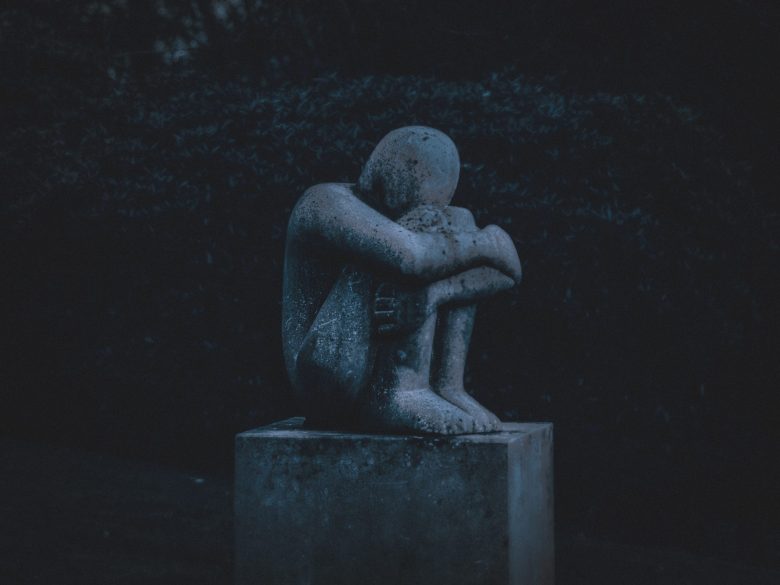By Aria Brent,
AFRO Staff Writer,
abrent@afro.com
It can be hard to support someone as they navigate grief. It’s even harder helping a child process one of life’s biggest challenges– but in many Black communities, conversations about death are happening earlier and earlier as youth increasingly become victims of violent crime.
Grief is a feeling that comes in phases and its never chronological. Many children who lose a loved one can spend their entire lives mourning and grieving them.
“Grief is a natural, normal, healthy response to loss of any kind,” said Brennan Wood, executive director of The Dougy Center. “It’s a natural human experience that we all go through and I think it’s really important when we’re talking about kids and families who’ve experienced loss.’
The Dougy Center was founded in 1982 and the organization was the nation’s first childhood bereavement center. The Dougy Center is highly acclaimed and is a model for other child bereavement centers across the nation. Wood is an alum of the program and has been involved with The Dougy Center since 1987.
Wood explained that although children are resilient, providing them with resources and support is vital to experience grief in a healthy way.
“We recognize that having an experience where you deal with loss, you’re going to grieve because you’re human and there is nothing wrong with grieving,” she said.
Here are three ways to support kids’ mentally as they grieve.
- Encourage them to grieve and acknowledge their emotions
Wood recommends encouraging children to grieve so that they don’t hold on to the heavy emotions related to grief in an unhealthy way.
“Grieving is something that we all go through, that we all need to experience in this life as a human. We grieve as deeply as we feel all the other myriad of human emotions and I think that one thing that we don’t get right as a culture is, understanding that grief is natural and normal and healthy,” said Wood.
She explained that grief is a very natural feeling and working through it is absolutely necessary in order to learn how to properly deal with death.
2. Create a support system for grieving children
“About 90 percent of all children can get through grief if they have support, and that support usually isn’t medical support. It’s the support of their peers, mentors and programs,” said Catherine Jaynes, Ph.D, CEO of the Children’s Collaborative for Healing and Support.
“We’re hoping that we are building systems in which we can identify these children and connect them to the support they need so that we can ensure that they have a chance at a healthy grief journey,” she said.
The Children’s Collaborative for Healing and Support was launched as an initiative of COVID Collaborative, an organization founded in 2020 that brought together top experts in health education, and the economy to help combat the impact of COVID-19. Amidst this work, the organization found out that the disease had left hundreds of thousands of children without a parent or caregiver.
Both Jaynes and Wood noted that children often feel alone in their grieving processes and feel like no one understands what they’re going through. However, creating a support system for them that consist of both adults and peers is extremely helpful.
“We bring kids together who’ve had a similar experience in their family because oftentimes, adults don’t know what to say to kids when hard things are happening. However, kids who are going through something similar do provide support to one another,” said Wood.
3. Educate yourself about children’s grief
“The more information that we know about understanding grief, the more powerful it is for families and children,” said Sarah Kernan, a bereavement counselor for Chesapeake Life Center at Hospice of the Chesapeake. “We do informationals about what grief is and signs to observe in your child and what to do. It’s important to learn that information and have that empowerment.”
Chesapeake Life Center at Hospice of the Chesapeake was founded in 1979 and they are a nonprofit, community-based organization that focuses on providing physical, psycho-social, spiritual and grief support services to individuals living with and affected by advanced illness.
Wood discussed the importance of educating yourself about children’s grief process, explaining that the impact of loss and grief on children is becoming an issue for communities more than we recognize.
“What has happened is that there’s a little more public awareness about the impact of loss and grief, and I think we need to take that as an opportunity to really inform our communities and the country about the impact of loss and grief,” said Wood. “We need to realize that this is an emerging public health situation that we need to address.”
The post Three ways to mentally support youth as they grieve the loss of a friend or loved one appeared first on AFRO American Newspapers .











